Moreton Bay and its catchment are internationally recognised as among the most biodiverse regions of the world.
Approximately 1,000 native animal species, many threatened, live in Moreton Bay or rely on its diverse, interconnected habitats during migration. Its beauty and importance to Queensland life and enterprise belie a picture of growing ecological decline, much of it tied to human development and climate change.
That is the present. The future could tell a different story. Healthy Moreton Bay is all about creating a thriving and sustainable ecosystem – one that will showcase Australian conservation and environmental leadership to the world in 2032.
The time to act is now. An investment in UQ’s Healthy Moreton Bay initiative is an investment in impact, ensuring that this extraordinary place is protected, preserved, enjoyed and respected for generations to come.
Healthy Moreton Bay will draw on the leadership of the Quandamooka Yoolooburrabee Aboriginal Corporation (QYAC) and strong partnerships with The Moreton Bay Foundation and other key stakeholders, including government, industry and the general public.
A collaborative approach is key to developing, testing and embedding sustainable ecological management practice, not just for the bay itself, but for the coastline and catchment areas facing threats compounded by climate change and severe weather events. Not least among these threats are:
- intrusion of invasive species
- sediment that smothers coral reefs, seagrass beds and mangroves, killing the flora and fauna that rely on them for life
- a growing list of pollutants
- land erosion.
Multi-disciplinary research, across UQ and in partnership with other institutions, will be accelerated through enhanced data synthesis and solutions modelling capability.
Why now?
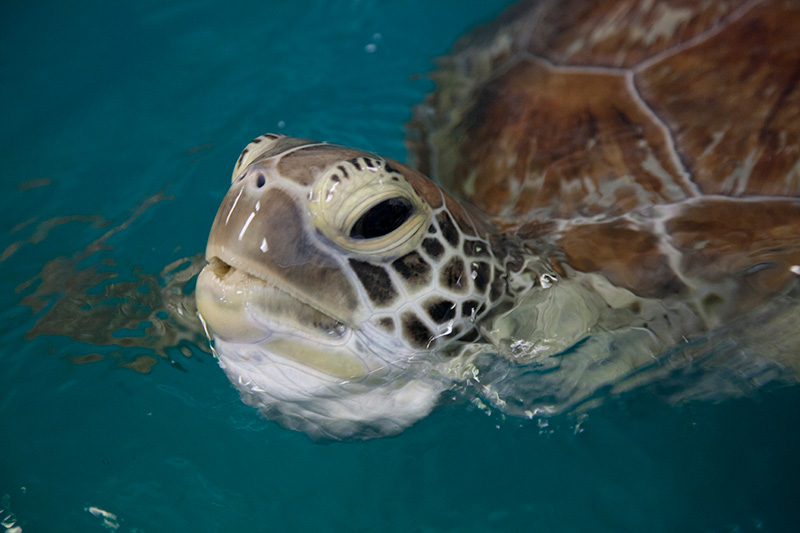 The eyes of the world will be on Brisbane and Australia in 2032 – a once-in-a-generation opportunity to showcase conservation leadership and impact. Globally, deep understanding of ecological pressures and viable, actionable strategies to relieve them have never been more important. And, while Queensland and Australia are home to exceptional biodiversity, our track record in environmental stewardship is less than stellar. This is a chance to change all that.
The eyes of the world will be on Brisbane and Australia in 2032 – a once-in-a-generation opportunity to showcase conservation leadership and impact. Globally, deep understanding of ecological pressures and viable, actionable strategies to relieve them have never been more important. And, while Queensland and Australia are home to exceptional biodiversity, our track record in environmental stewardship is less than stellar. This is a chance to change all that.
With Healthy Moreton Bay comes a shot at transformative, research-driven restoration and conservation. It is an Australian success story in the making.
Read the case for support to learn more about Healthy Moreton Bay:
Healthy Moreton Bay Initiative: A thriving coastal ecosystem by 2032 (PDF, 2.6 MB)
A generous $1 million gift from The Goodman Foundation has brought realising the Healthy Moreton Bay vision one step closer to reality. It’s a first, big step.
But it will take ‘a village’ to make this happen.
Inspired philanthropists who similarly embrace this opportunity for transformative environmental change are vital.
Research leadership
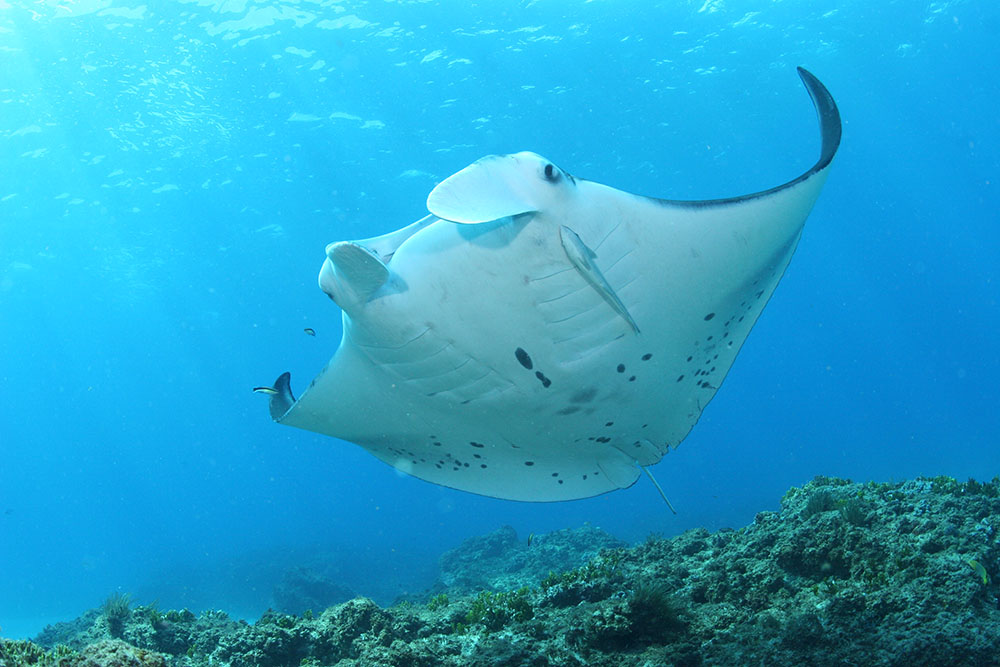
The Healthy Moreton Bay Endowed Research Chair is a first, vital step in achieving this vision. The Chair will bring a multidisciplinary research framework to life, integrating field investigation, data synthesis, solutions modelling, testing and intervention. Working closely with researchers and collaborators across wide-ranging areas of expertise, the Chair will assess and fill evolving needs and knowledge gaps.
Existing UQ infrastructure will be central to success, including but not limited to the Centre for Marine Science, the Centre for Biodiversity and Conservation Science, the Moreton Bay Research Station and the School of the Environment. Community, government, educational and industry stakeholders are equally key and the Chair will foster collaboration while working respectfully with Traditional Owners.
A $5 million endowment will secure the Chair, potentially a named Chair, in perpetuity and ensure the inaugural Chair is a global leader with a proven track record in innovative, impact-based conservation research and practice.
Stage 1 of the initiative relies on an investment of $8.5 million:
- Healthy Moreton Bay Endowed Research Chair — $5 million
- Interdisciplinary research fellows/early career researcher cluster — $2.5 million
- Interdisciplinary PhD student cluster — $500,000
- Indigenous Scholars in Residence program — $500,000
Major General The Honourable Peter Arnison AC, CVO, KStJ
"I’m thrilled to back the Healthy Moreton Bay Initiative, restoring Moreton Bay by the 2032 Olympics for Queensland’s prosperity and Australia’s global conservation leadership—a resilient bay with thriving marine life, boosting eco-tourism and sustainable fisheries, and showcasing cutting-edge science. UQ and The Goodman Foundation lead this 10-year plan with science, advocacy, and action. Goals: $30M endowment for lasting impact; $5M for a Chair and programs. With The Goodman Foundation’s $1M pledge, we need your support—donate, advocate, or share expertise—to reach $4M by March 2026."
 Major General The Honourable Peter Arnison AC, CVO, KStJ, served 37 years in the Australian Army, retiring in 1996 as Land Commander Australia. He was Queensland's Governor (1997–2003), appointed by Her Majesty The Queen, and Chancellor of Queensland University of Technology (2004–2012). He chaired the Centre for Military and Veterans' Health, served as Director of ENERGEX Ltd, and held roles with the Queensland Community Foundation and Australian Multicultural Foundation.
Major General The Honourable Peter Arnison AC, CVO, KStJ, served 37 years in the Australian Army, retiring in 1996 as Land Commander Australia. He was Queensland's Governor (1997–2003), appointed by Her Majesty The Queen, and Chancellor of Queensland University of Technology (2004–2012). He chaired the Centre for Military and Veterans' Health, served as Director of ENERGEX Ltd, and held roles with the Queensland Community Foundation and Australian Multicultural Foundation.
Major General Arnison holds an Economics degree from The University of Queensland and honorary doctorates from QUT, UQ, Griffith, and Southern Queensland universities. His honours include Companion of the Order of Australia, Commander of the Royal Victorian Order, and Knight of Grace of St John of Jerusalem.
Dr Robert V Anderson OAM
"I congratulate the Goodman Foundation and The University of Queensland on their initiative to protect and revitalise the waters of Moreton Bay which form our Waterways, our Seaways and our Highways.
As a Quandamooka Elder and Traditional Owner, I believe it is important to walk together and work together in caring for our Country and our Seaways. It is part of our collective responsibility and legacy to future generations.
I am pleased to have the opportunity to support the Healthy Moreton Bay Initiative."
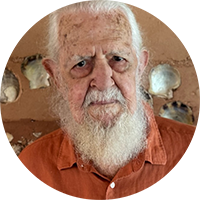 Dr Robert V Anderson OAM, known as Uncle Bob, is a Ngugi Elder from Mulgumpin, Moreton Island.
Dr Robert V Anderson OAM, known as Uncle Bob, is a Ngugi Elder from Mulgumpin, Moreton Island.
The Traditional Owners and Custodians of Moreton Bay are the Quandamooka peoples, Ngugi, Nunukul and Goenpul, who together form the Quandamooka Nation.
We are the people of the sand and water, Yoolooburrabee. Yoolooburrabee calls to mind the many lakes and streams that proliferate our Lands and our Seaways that bestow upon us their bounties sustaining our bodies and strengthening our spirits.
Helen Darch OAM
"I am delighted to support the Healthy Moreton Bay Initiative and its commitment to restoring and protecting the iconic ecosystem that underpins our ability to live, work and thrive.
Restoring Moreton Bay by the 2032 Games will not only assist Queensland’s prosperity through ecotourism, it will showcase Australia’s global conservation leadership. The University of Queensland, in conjunction with the Goodman Foundation, is leading this initiative - a 10-year plan that funds science, advocacy and action to ensure our Bay, and its diverse marine life, thrive."
 Helen Darch OAM is Director of Nedhurst Consulting, a strategic planning consultancy. For over 18 years she has been a Director on a wide range of Not-for-Profit and Government Boards. Currently these include Ordinary Commissioner of the Crime and Corruption Commission, and Chair, Health and Wellbeing Queensland’s Research Advisory Committee.
Helen Darch OAM is Director of Nedhurst Consulting, a strategic planning consultancy. For over 18 years she has been a Director on a wide range of Not-for-Profit and Government Boards. Currently these include Ordinary Commissioner of the Crime and Corruption Commission, and Chair, Health and Wellbeing Queensland’s Research Advisory Committee.
Helen is committed to social justice, and much of her work has been in the health and disability sectors. In 2022 received an Order of Australia for services to community health.
Robert Dunne JP
"I’m honoured to support the Healthy Moreton Bay Initiative. Protecting the bay is about safeguarding one of Australia’s great natural treasures for generations to come. A thriving bay means thriving communities; environment, education and economy working together. This initiative brings science, business and community into alignment, and I’m committed to adding my voice to its success."
 Robert Dunne has enjoyed being involved in many of Brisbane’s city shaping projects as the Director of Commercial Sales at Savills over the past 30 years. He has served as a Justice of the Peace and contributed extensively to community organisations including Union College at UQ, the Queensland Government’s Mentoring for Growth program, and a founding creator of Ithaca Intact bush care initiative restoring the healthy waterways of Ithaca Creek and Enoggera Creek.
Robert Dunne has enjoyed being involved in many of Brisbane’s city shaping projects as the Director of Commercial Sales at Savills over the past 30 years. He has served as a Justice of the Peace and contributed extensively to community organisations including Union College at UQ, the Queensland Government’s Mentoring for Growth program, and a founding creator of Ithaca Intact bush care initiative restoring the healthy waterways of Ithaca Creek and Enoggera Creek.
He has also been a fundraiser, mentor and coach across education, environment, health and youth sport for more than 2 decades and has particularly enjoyed guest lecturing at The University of Queensland.
Tom Robinson
"It is an honour to support the Healthy Moreton Bay Initiative through the work of the Goodman Foundation. We have on our doorstep one of Australia’s most significant natural waterways, and as residents of South East Queensland we share a responsibility to protect and preserve this unique marine environment for future generations. The Bay sustains an extraordinary diversity of life and underpins the wellbeing of the communities who live and work along its shores. By safeguarding its health and resilience, we help to secure a sustainable and prosperous future for all who call Moreton Bay home."
 Tom Robinson is a young adventurer from Brisbane whose life has been shaped by the waters of Moreton Bay and the Brisbane River. In 2022, he embarked on a solo journey to become the youngest person ever to row across the Pacific Ocean. After 265 days at sea and more than 7,500 nautical miles aboard his vessel Maiwar—named after the Aboriginal word for the Brisbane River—he achieved this record-setting feat, earning recognition from Guinness World Records and being named the Australian Geographic Young Adventurer of the Year.
Tom Robinson is a young adventurer from Brisbane whose life has been shaped by the waters of Moreton Bay and the Brisbane River. In 2022, he embarked on a solo journey to become the youngest person ever to row across the Pacific Ocean. After 265 days at sea and more than 7,500 nautical miles aboard his vessel Maiwar—named after the Aboriginal word for the Brisbane River—he achieved this record-setting feat, earning recognition from Guinness World Records and being named the Australian Geographic Young Adventurer of the Year.
Tom now lives and works by the Bay as a boat builder, sharing his experiences through public speaking at schools and corporate events, where he reflects on endurance, environmental responsibility, and the lessons of life at sea.
Anthony Reinhart
"I didn’t realise Moreton Bay was a globally significant ecosystem until I moved to Brisbane from Canada in 2023. My curiosity was ignited during a family whale-watching excursion into the bay, which set sail from the Brisbane River. As we cruised past riverside industries, a large fuel terminal, the Port of Brisbane and the airport, I wondered what kind of impact the rapid growth of South East Queensland was having on the sparkling, blue bay that stretched out in front of us. This ultimately led me to the Moreton Bay Foundation, where I learned about the damage already done to the bay, along with the foundation’s quest to counter it through research, remediation projects and awareness-raising.
The plight of the bay has inspired me to embark on an ongoing photography project to document the challenges it faces, and pay tribute to the people working hard to restore it. I fully support the Healthy Moreton Bay initiative and its vitally important mission to protect and preserve this natural gem long into the future."
 Anthony Reinhart is a Canadian photographer and former journalist with The Globe and Mail, Canada’s national newspaper. He lived in Brisbane with his Australian wife and their twin daughters from 2023-2025, and is currently based in Waterloo, Ontario.
Anthony Reinhart is a Canadian photographer and former journalist with The Globe and Mail, Canada’s national newspaper. He lived in Brisbane with his Australian wife and their twin daughters from 2023-2025, and is currently based in Waterloo, Ontario.
Anthony is working on a long-term documentary photo project to highlight the impacts of human activity on Moreton Bay’s biodiversity and environmental health.
Councillor Wendy Boglary
"I am an advocate for the sustainable future of Moreton Bay and therefore delighted to support the Healthy Moreton Bay Initiative.
UQ and The Goodman Foundation are leading this 10- year plan to preserve and restore Moreton Bay’s ecosystem and biodiversity though science, advocacy, community engagement and policy development. To deliver a sustainable South-East Queensland and build a resilient coastal environment by the 2032 Olympics is a surmountable goal.
It is imperative we prioritise the health of Moreton Bay, South-East Queensland’s backyard, as this will lead to Queensland’s prosperity showcasing Australia’s global conservation leadership and cutting-edge science.
Having a resilient Moreton Bay is vital for the health of South-East Queensland, as the Bay is used for recreational activities, commercial industries and economic growth while importantly being home to thousands of species of marine life.
Achieving this outcome will take concerted collaborative efforts by all levels of government, private enterprise and individuals.
The goal is to reach a $30m endowment for lasting impact and $5m for a Chair and programs. A lasting legacy for generations to come. With the initial Goodman Foundation’s $1m pledge, I encourage further support through donating, advocacy or sharing expertise to reach $4m by March 2026."
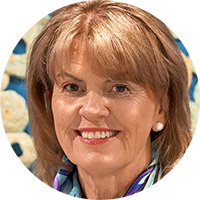 Wendy Boglary is a Redland City Councillor, now in her 5th term representing Division 1 and its suburbs of Wellington Point and Ormiston. Wendy has been heavily involved within the local community throughout her life. She is the proud mother of 3 boys who grew up enjoying the wonderful Redlands Coast lifestyle.
Wendy Boglary is a Redland City Councillor, now in her 5th term representing Division 1 and its suburbs of Wellington Point and Ormiston. Wendy has been heavily involved within the local community throughout her life. She is the proud mother of 3 boys who grew up enjoying the wonderful Redlands Coast lifestyle.
As a strong advocate for the unique Redlands Coast environment and the sustainability of Redland City’s character through wise planning, Wendy is committed to strengthening the community for a sustainable future while building and protecting the local economy, environment and lifestyle.
Dr Jim Thompson PSM
"The conservation of critical ecosystems, such as Moreton Bay, depends on like-minded, passionate and bold organisations and individuals working together. I strongly support the efforts of The University of Queensland and the Goodman Foundation to launch the Healthy Moreton Bay Initiative to secure the future of the Bay. With ambitious goals they need your advocacy, financial support and expertise to make a difference."
 Jim Thompson is Chief Executive Officer of Queensland Museum (QM). Prior to joining QM Jim was Queensland’s Chief Biosecurity Officer and officer-in-charge of Biosecurity Queensland within the Department of Agriculture and Fisheries. Jim has more than 40 years of experience across five Government agencies in New South Wales and Queensland including 14 years in scientific research focussed on livestock and wildlife management.
Jim Thompson is Chief Executive Officer of Queensland Museum (QM). Prior to joining QM Jim was Queensland’s Chief Biosecurity Officer and officer-in-charge of Biosecurity Queensland within the Department of Agriculture and Fisheries. Jim has more than 40 years of experience across five Government agencies in New South Wales and Queensland including 14 years in scientific research focussed on livestock and wildlife management.
Jim has held senior leadership roles in Government since 2006. He has been a member and chair of numerous state and national committees, with a particular focus on science, policy and organisational leadership. He has worked extensively with non-Government industry bodies and stakeholders and is an Executive Fellow of the Australia and New Zealand School of Government.
Reverend Peter Sweetman
"As a lifelong Brisbane resident, a grandfather and a Christian minister, I offer my wholehearted support for the Healthy Moreton Bay Initiative. Having grown up enjoying the waters of Moreton Bay – and now sharing those experiences with my grandchildren – I am delighted by this carefully considered plan to ensure the Bay remains a source of life, wonder and nourishment for generations to come.
This restorative vision, led by The University of Queensland and supported by the Goodman Foundation, deeply resonates with the Creator’s call for humanity to care for the world entrusted to us (Genesis 2:15).
I am profoundly grateful for everyone involved in this initiative – from the traditional custodians of these waters and our skilled scientific community to government and industry leaders, philanthropic partners, and all who cherish the beauty and significance of Moreton Bay.
It is the collaborative spirit of this initiative that inspires confidence in its success. I believe it is a wise and worthy investment in the health and flourishing of such a remarkable part of God’s creation."
 Rev. Peter Sweetman is a Christian minister who has served the people of Brisbane for over 36 years. He is the Founding Pastor of Bridgeman Baptist Community Church and formerly chaired the Baptist denomination of Queensland.
Rev. Peter Sweetman is a Christian minister who has served the people of Brisbane for over 36 years. He is the Founding Pastor of Bridgeman Baptist Community Church and formerly chaired the Baptist denomination of Queensland.
Peter is passionate about restoration – in individuals, families, communities, and the environment. He and his wife Maree regularly enjoy walks along the shores of Moreton Bay.
Simon Cleary
"Dugongs. Sea turtles. Sweeping beds of seagrass and delicate coral. A breathtaking array of bird and marine life. Moreton Bay is one of the world’s most biodiverse marine ecosystems, and – for a Brisbanite - dear to my heart. So it is an honour to be able to support the Healthy Moreton Bay initiative, whose goal is to transform, restore, and conserve this precious ecosystem. Led by UQ and the Goodman Foundation, this 10-year plan will be built on research and impact-based conservation practice. Tangible goals for an enduring ecological future. However, this vision can only be achieved through community support – which is why we need your help. Please join this effort – through your advocacy, philanthropy and assistance – and be part of the Stage 1, $8.5 million investment, in the care for the Moreton Bay region for generations to come."
 Simon Cleary is a writer and barrister. He has published four acclaimed books, including The Comfort of Figs (2008), Closer to Stone (2012) and The War Artist (2018). Simon holds degrees in Arts and Law (Hons) from The University of Queensland. He served as Australia’s Deputy Telecommunications Ombudsman (2006-2010) and has served on the boards of numerous community organisations, including as a founding member of Queensland’s pro bono centre, LawRight.
Simon Cleary is a writer and barrister. He has published four acclaimed books, including The Comfort of Figs (2008), Closer to Stone (2012) and The War Artist (2018). Simon holds degrees in Arts and Law (Hons) from The University of Queensland. He served as Australia’s Deputy Telecommunications Ombudsman (2006-2010) and has served on the boards of numerous community organisations, including as a founding member of Queensland’s pro bono centre, LawRight.
Simon’s most recent book, Everything is Water (2024), was shaped by his 344 kilometre journey by foot along the banks of the Brisbane River from its source to Moreton Bay. It considers our complex relationship with nature through flood, drought, time and place, and explores the ways rivers connect landscapes, ecologies, histories, communities and myth.
Dave Copeman
"Moreton Bay is one of the world’s most biodiverse marine ecosystems, and one of Queensland’s most important - yet it sits at the frontline of climate change, urban expansion and ecological decline. The Queensland Conservation Council supports the Healthy Moreton Bay Initiative because it unites science, policy and community to tackle these challenges head-on. Protecting the Bay requires strong environmental leadership, Indigenous partnership, and decisions that put nature and people first. With collaboration and courage, we can restore the Bay’s health and show that Queensland can be a global leader in climate and biodiversity action."
 Dave Copeman is an experienced campaigner and community organiser who has spent 20+ years organising for social change in Queensland. He has been the Director of Queensland Conservation Council since 2021, and loves to push Queensland to be a climate and biodiversity leader, not a laggard. He was the founding lead organiser of the Queensland Community Alliance, and before that has worked as a union, human rights and pro-democracy campaigner and a political advisor.
Dave Copeman is an experienced campaigner and community organiser who has spent 20+ years organising for social change in Queensland. He has been the Director of Queensland Conservation Council since 2021, and loves to push Queensland to be a climate and biodiversity leader, not a laggard. He was the founding lead organiser of the Queensland Community Alliance, and before that has worked as a union, human rights and pro-democracy campaigner and a political advisor.
Dave's family have worked for generations to protect Queensland's natural wonders as environmental activists. He is committed to building people power to change Queensland and lives in Brisbane with his partner and 2 kids.
Dr Wendy Scaife
"Thank you to the Goodman Family and The University of Queensland for their visionary leadership in safeguarding Moreton Bay’s future. This extraordinary ecosystem — rich in biodiversity, cultural heritage and recreational treasures — has been a source of joy and connection for generations of families, communities and visitors. Yet for too long we’ve taken its beauty and resilience for granted.
Did you know that only 5% of philanthropic giving by Australian foundations* supports climate and environmental causes? While that’s a step forward, it’s nowhere near enough to reverse the damage or meet the urgent needs of our declining natural systems like the Bay.
To heal and protect Moreton Bay, we need action. A groundswell of support from families, communities, businesses, philanthropists and every person who cherishes the Bay. Every person who cares can play a part according to their means. Let’s unite to ensure Moreton Bay doesn’t just survive, but thrives – not only for the Olympics, but for every generation that follows.
Join the movement. Protect the Bay. Shape the future."
*Australian Environmental Grantmakers Network 2024
 Wendy has been involved in the nonprofit and philanthropy sector for more than 3 decades as a volunteer, charity CEO, lecturer and researcher. As the former leader of QUT’s long serving teaching and research centre for the community sector ACPNS, Wendy has researched many topics including the myriad ways that people give. She serves on philanthropic grants committees and international research boards and is proudly a director of the Benefolk Foundation, which works toward greater wellbeing of those in the nonprofit sector.
Wendy has been involved in the nonprofit and philanthropy sector for more than 3 decades as a volunteer, charity CEO, lecturer and researcher. As the former leader of QUT’s long serving teaching and research centre for the community sector ACPNS, Wendy has researched many topics including the myriad ways that people give. She serves on philanthropic grants committees and international research boards and is proudly a director of the Benefolk Foundation, which works toward greater wellbeing of those in the nonprofit sector.
Wendy was honoured to receive Fundraising Institute Australia’s Arthur Venn Lifetime Achievement Award in 2021 for consistent excellence and best practice through actions, leadership and intellect. She is a huge believer in the power of people, knowledge and education to bring positive change.
Rob McAfee
"On behalf of the Board and Members of Royal Queensland Golf Club, I am pleased to express our strong support for the Healthy Moreton Bay initiative – a landmark 10-year program dedicated to restoring and protecting one of Australia’s most precious natural ecosystems.
As custodians of a unique stretch of the Brisbane River corridor, Royal Queensland is acutely aware of the interdependence between a healthy river system and the surrounding landscape. The river defines the character of our course, and we recognise our responsibility to manage our land in a way that actively contributes to the long-term health of Moreton Bay and its catchments.
We commend The University of Queensland and its partners for leading this important collaboration and for fostering community and institutional engagement around a shared environmental vision. Royal Queensland Golf Club stands ready to contribute to these efforts in any way that aligns with our stewardship responsibilities and sustainability goals."
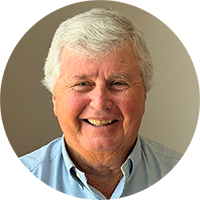 Robert McAfee is the Managing Director of McAfee Plastering & Spraying, one of Queensland’s longest-established specialist contracting firms, providing fireproofing and solid plastering services to major infrastructure and commercial projects for more than 70 years. Renowned for its technical capability and reliability, the company has contributed to landmark projects across Brisbane, including tunnels, hospitals and aviation facilities.
Robert McAfee is the Managing Director of McAfee Plastering & Spraying, one of Queensland’s longest-established specialist contracting firms, providing fireproofing and solid plastering services to major infrastructure and commercial projects for more than 70 years. Renowned for its technical capability and reliability, the company has contributed to landmark projects across Brisbane, including tunnels, hospitals and aviation facilities.
Robert also serves as President of Royal Queensland Golf Club, where he has led key governance improvements, strengthened long-term financial planning, and championed equity and sustainability across the Club’s operations. He is widely respected for his practical, hands-on leadership and strong commitment to delivering quality outcomes.
Dr Ian Poiner
"Moreton Bay is an internationally recognised Ramsar wetland of exceptional biodiversity and aesthetic, cultural, economic and historical significance. Increasing pressures from climate change and surrounding development threaten its health, requiring coordinated action guided by science excellence and collaboration with Traditional Owners, communities, industry and government.
The Healthy Moreton Bay Initiative, led by The University of Queensland and with support from the Goodman Foundation, aims to meet this challenge. Having completed my Honours and PhD research at Moreton Bay and a current user of the Bay, I strongly support this initiative and encourage others to help protect its future."
 Dr Poiner chairs the Great Barrier Reef Marine Park Authority (Reef Authority) and is a former CEO of the Australian Institute of Marine Science and CSIRO research scientist. Dr Poiner has extensive experience as the Chair or a Director on company, incorporated and non-incorporated joint ventures and CRC boards. He has worked widely with marine industries and has experience working with Aboriginal and Torres Strait Islander communities.
Dr Poiner chairs the Great Barrier Reef Marine Park Authority (Reef Authority) and is a former CEO of the Australian Institute of Marine Science and CSIRO research scientist. Dr Poiner has extensive experience as the Chair or a Director on company, incorporated and non-incorporated joint ventures and CRC boards. He has worked widely with marine industries and has experience working with Aboriginal and Torres Strait Islander communities.
He obtained his BSc (Hons) and PhD qualifications from UQ and was awarded an Honorary Doctor of Science by James Cook University in 2013 and by UQ in 2022. He is a Fellow of the Australian Academy of Technology and Engineering, and the patron of the Australian Marine Science Association (AMSA), Australia's peak professional body for marine scientists.
The impact of Healthy Moreton Bay will be seen in:
- clean water
- abundant life
- thriving ecosystems
- engaged communities
- climate resiliency.
An applied research model will enable a continuous improvement loop:
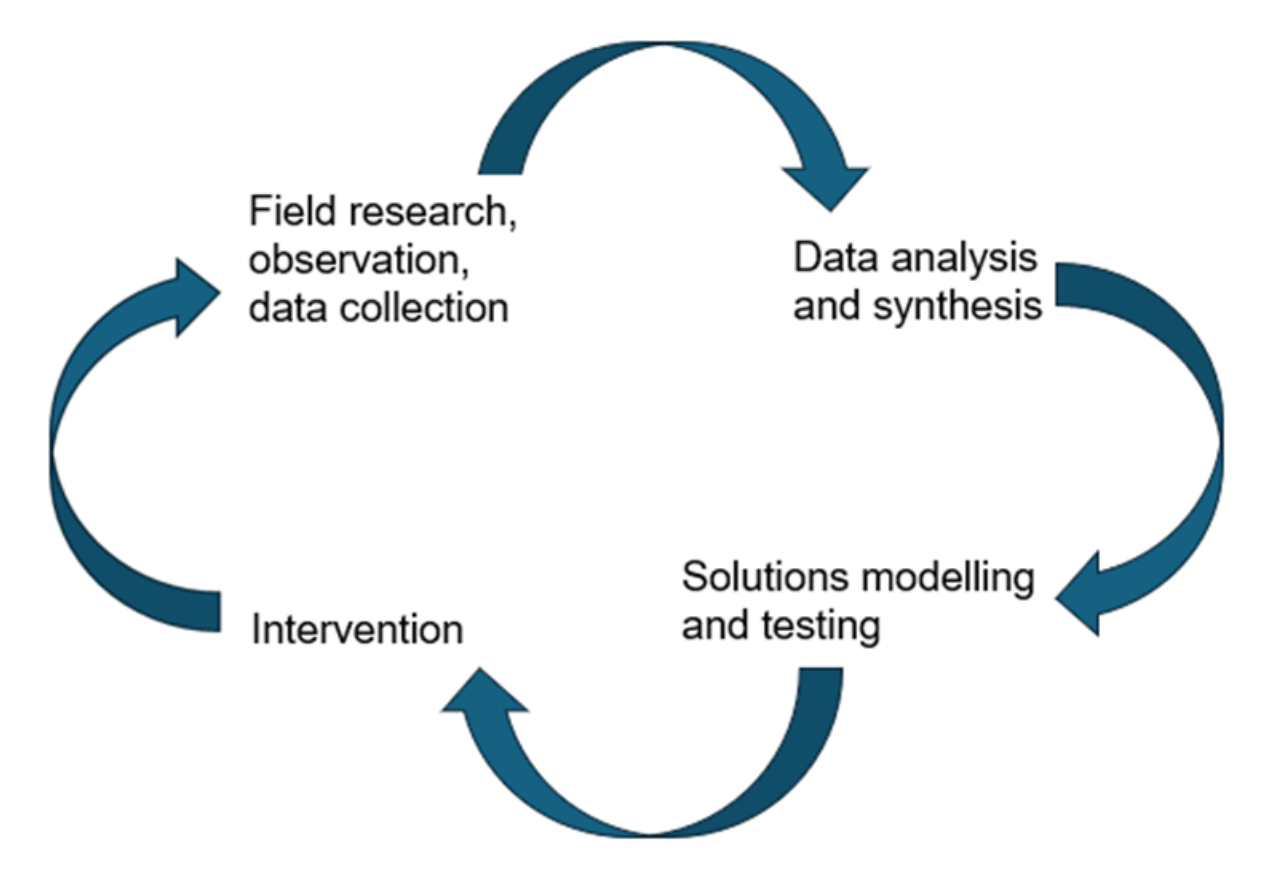
The path forward:
- Baselines are established across the entire ecosystem, including the Bay itself, the coastline, the catchment and linked rivers.
- Key drivers of degradation and recovery are determined.
- Ongoing monitoring and measurement allow data to be synthesised and manipulated for solutions modelling and testing.
- Intervention is undertaken and outcomes measured against targets.
Healthy Moreton Bay research will be multidisciplinary and collaborative, across UQ faculties — including the Centre for Marine Science and Centre for Biodiversity and Conservation Science — as well as with external research partners, including NGOs.
Research Leads for the Healthy Moreton Bay Initiative:
Associate Professor Karen Cheney
Karen Cheney's research profile
Associate Professor Carissa Klein
Carissa Klein's research profile
Areas of focus
Theme 1: Establishing baselines to monitor ecosystem health, environmental variables and biodiversity
Comprehensive ecosystem and biodiversity assessments of Moreton Bay against which to measure future impacts are lacking. To fill this gap, intensive sampling of environmental variables, including water quality, will be undertaken across the bay. High resolution underwater imaging, remote sensing and environmental DNA will be used to inventory biodiversity in various habitats, including coral, seagrass and mangroves.
Key researchers include:
Professor Helen Bostock
Helen Bostock's research profile
Dr Nicola Browne
Nicola Browne's research profile
Associate Professor Karen Cheney
Karen Cheney's research profile
Associate Professor Rebecca Dunlop
Rebecca Dunlop's research profile
Dr Janet Lanyon
Janet Lanyon's research profile
Professor Catherine Lovelock
Catherine Lovelock's research profile
Dr Ben Mos
Ben Mos's research profile
Emeritus Professor John Pandolfi
John Pandolfi's research profile
Professor Cynthia Riginos
Cynthia Riginos's research profile
Associate Professor Chris Roelfsema
Chris Roelfsema's research profile
Associate Professor Ian Tibbetts
Ian Tibbetts's research profile
Theme 2: Understanding human uses and values
Sustainable management of Moreton Bay requires an understanding, currently lacking, of the value it has to people. To build that understanding, social scientists will survey diverse constituents and communities, creating a comprehensive picture of the places they value, the activities they undertake there, and what makes these places important. Informed by this research, enduring conservation practice that hinges on public ownership can be developed.
Key researchers include:
Dr Claudia Benham
Claudia Benham's research profile
Associate Professor Angela Dean
Angela Dean's research profile
Professor Salit Kark
Salit Kark's research profile
Dr Tracy Schultz
Tracy Schultz's research profile
Theme 3: Effective conservation planning, ecological modelling and testing for long-term success
Ecological modelling and spatial prioritisation will be employed to develop a range of management actions and solutions required for a healthy, sustainable bay. These include actions focused on land-based human activities resulting in run-off of nutrients and sediments (e.g. urbanisation, agriculture), and marine-based human activities (e.g. boating, fishing, dredging). Buy-in and collaboration with key stakeholders will support ongoing conservation initiatives, including marine park zoning and land-use/run-off management.
Key researchers include:
Professor Justine Bell-James
Justine Bell-James's research profile
Dr Matthew Holden
Matthew Holden's research profile
Associate Professor Carissa Klein
Carissa Klein's research profile
Professor Catherine Lovelock
Catherine Lovelock's research profile
Professor Hugh Possingham
Hugh Possingham's research profile
Associate Professor Ryan Turner
Ryan Turner's research profile
Dr Amelia Wenger
Amelia Wengers research profile
The Goodman Foundation continue to champion marine conservation
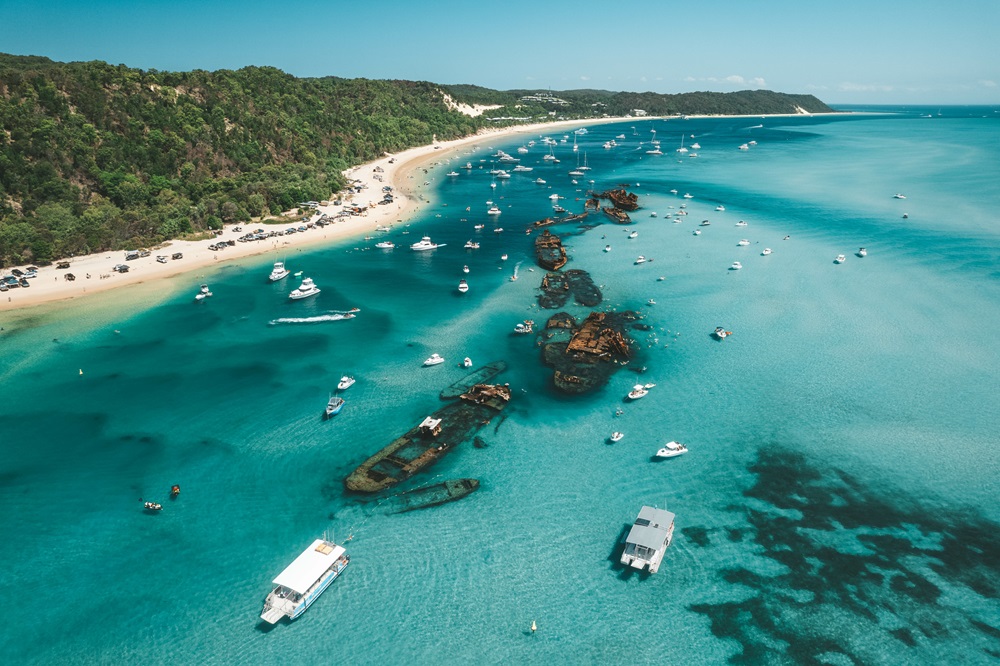
In a groundbreaking commitment to the health of Queensland’s iconic Moreton Bay, The Goodman Foundation has generously donated $1 million to support a University of Queensland Healthy Moreton Bay Research Chair.
CBCS News: Moreton Bay Special Issue

The UQ Centre for Biodiversity and Conservation Science produces a quarterly newsletter. This special issue focuses on the diverse research in Moreton Bay, which covers everything from seahorses to sewage to social values.
Contact us
Get in touch for more information or to discuss how you can make a difference.
Brenda Tournier
Associate Vice President, Advancement

